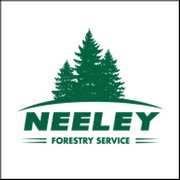What Forest Landowners Should Know About Estate Planning

Growing up on a forested family property provides memories and experiences that last a lifetime. Playing in tree houses, hunting with your family, or just roaming through the serene woods are cherished moments that you want to pass along to your family once you’re gone. Unfortunately, without the foresight of diligently crafting an estate plan, your forest could be taken from your family. If you’re planning on leaving behind your forested land to loved ones, you need to start early by working with foresters and an experienced estate planner.
What Could Happen If You Don’t Create an Estate Plan?
As land value increases and tax laws become more convoluted, ensuring the safe bequeathal of your family forest to the next generation grows increasingly more difficult. If you don’t properly plan for how your estate is handled, your family may be left with nothing more than a large tax bill. Forested land is considered a highly appreciated asset, meaning its value will be greater when it’s time to pass it along to your family than when you first purchased or inherited it.
This is why having a family-owned forest makes you susceptible to unforeseen taxes if you don’t plan ahead. According to the SRS Forest Economics and Policy unit, family forest owners are more likely than the general U.S. population to incur the estate tax. Failing to consider the rise in your property value when creating a will could leave your family with no way to pay the various taxes. As a result, they could be forced to open your forest for logging, lease out parts of your land, or even sell it entirely.
How to Successfully Bequeath Your Forest
 To make sure this doesn’t happen, you need to have a forest management plan. This will dictate how foresters and estate planners proceed to ensure your property stays in the family and is managed in the manner you want.
To make sure this doesn’t happen, you need to have a forest management plan. This will dictate how foresters and estate planners proceed to ensure your property stays in the family and is managed in the manner you want.
Depending on your plans, they can guide you toward the best option, such as exercising the lifetime giving option. This allows you to “gift” portions of your forest to your family, transferring ownership of portions of your land up to $12,000 on an annual, tax-free basis.
Another option is working with a nonprofit conservation organization. While not entirely tax-free, taking advantage of conservation easements and restrictions will keep the forest in your family and ease the financial burden. Your family will still own the land, but there will be restrictions on how it can be used in the future. Foresters can help you find viable uses for your land that qualify you for these options.
Navigating the estate planning of your forested property is a long, involved process that is best done with the help of professionals. For assistance managing your land and its future uses, contact the experienced team at Neeley Forestry Services in Camden, AR. Their foresters specialize in land management, hunting leases, and timberland appraisals, and they’ll guide you toward the best solution to ensure your forest stays in the family and is used as intended. Call (870) 836-5981 to speak to a member of the team, or visit them online to learn more about their services.
About the Business
Have a question? Ask the experts!
Send your question

